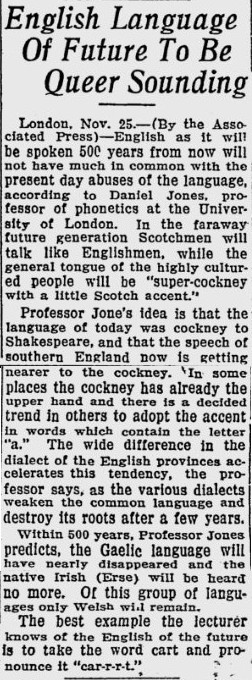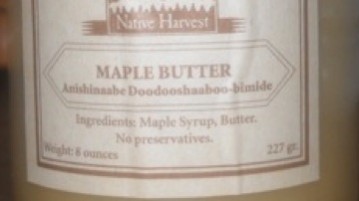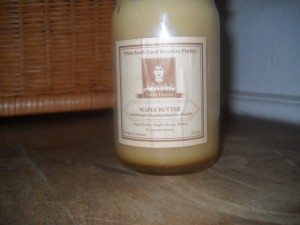Languages
Honorificabilitudinitatibus
Honorificabilitudinitatibus, in Latin, means "the state of being able to achieve honours," but it's also an English word and is unusual for a number of reasons. First, according to wikipedia it's "the longest word in the English language featuring alternating consonants and vowels."Second, it's used exactly once by Shakespeare, in Love's Labour's Lost:
But this single use is considered highly significant by those who believe Francis Bacon wrote all of Shakespeare's works, since honorificabilitudinitatibus happens to be an anagram for "hi ludi, F. Baconis nati, tuiti orbi," which in Latin means "these plays, F. Bacon's offspring, are preserved for the world."
Watch the video below if you need help pronouncing it.
Posted By: Alex - Sun Dec 30, 2012 -
Comments (1)
Category: Languages
Korean-speaking Elephant
Koshik the elephant has taught himself to imitate the words of his Korean trainers. He can say five words: "annyong" ("hello"), "anja" ("sit down"), "aniya" ("no"), "nuo" ("lie down"), and "choah" ("good"). He does this by sticking his trunk in his mouth. [eurekalert]My parents had a welsh terrier who would say "Out" whenever he wanted to go out. Though the way he said it was more like "Oooouuuuuuuttttttt." He would only make the sound when he wanted to go out, and if you said the word 'out' he would go nuts, because he knew what it meant.
Posted By: Alex - Tue Nov 06, 2012 -
Comments (3)
Category: Animals, Languages
In the future, we’ll all be speaking Super Cockney
Almost 87 years have passed since this professor made his prediction. Is there any chance it might still come true?From the St. Petersburg Evening Independent, Nov. 25, 1924.

Posted By: Alex - Sat May 26, 2012 -
Comments (3)
Category: Futurism, Languages
Esperanto Armageddon
In a Mad Max future, Esperanto will save the day! Huh?
Posted By: Paul - Sun May 13, 2012 -
Comments (5)
Category: Languages, Movies, Science Fiction
Nice Universe
Craig Carver, in A History of English in its Own Words, reveals that the word 'nice' once meant something very close to 'weird':From there it is difficult to trace the convolutions of its senses, the next apparently being 'wanton,' 'lewd' ('These are complements, these are humours, these betraie nice wenches that would be betraied without these,' 1588 Shakespeare, Love's Labour's Lost), followed by 'strange,' 'rare,' 'uncommon' ('For there be straunge wonderous workes, dyverse maner of nyce beestes and whall fishes,' 1535, Coverdale Bible) and 'slothful,' 'lazy.'
So in Shakespeare's time, Weird Universe might have been called Nice Universe, or Nyce Universe.
'Weird,' on the other hand, (according to Carver) originally meant 'fate' or 'destiny.' In this form, the word was used as early as the 8th century. In the plural, the Wyrdes, it signified the three female goddesses, the Fates -- which is how Shakespeare used it in Macbeth to characterize the three witches, the Weird Sisters.
It was only in the early 19th century that the Romantic poet Shelley first used the word 'weird' in its modern sense to indicate 'uncanny,' 'strange,' or 'unusual.' In his 1816 poem Alastor, or The Spirit of Solitude he writes: "In lone and silent hours, / When night makes a weird sound of its own stillness."
And that's today's etymology lesson!
Posted By: Alex - Mon Jan 09, 2012 -
Comments (3)
Category: Languages
Fake Language Song
Although the lyrics sound like a variety of languages, it's all gibberish.
YouTube identifies the performer as Arihiro Fujimura.
Posted By: Paul - Mon Oct 04, 2010 -
Comments (6)
Category: Languages, Music, Comedians, Parody, Asia
The Revenge of the Ojibwe

That's when I noticed the native name given for the product: "Anishinaabe Doodooshaaboo-bimide."
Yeah, right. You just know this is a joke the Native Americans are playing on us politically correct and guilty invaders, trying to get us to pronounce a bunch of doo-wop lyrics and sound like Frankie Valli.
But it does taste great!
Posted By: Paul - Sat May 22, 2010 -
Comments (5)
Category: Food, Languages, Native Americans
And The Angels Sing—Japanese Style!
Something tells me the lovely and enthusiastic Japanese singer here has learned her lyrics phonetically--and I'm not sure they emerge as English.
Original Glenn Miller version included for purposes of comparison.
Posted By: Paul - Sun Mar 21, 2010 -
Comments (3)
Category: Languages, Mistranslations, Music, Asia
It Just Ain’t Natural!
Here's a quick round-up of a few things that I couldn't quite crow-bar into the "Weird Wildlife" category.If you've any particular aversion to rats, and quite a lot of people have, then Deshnok in India is probably a place best avoided, for there stands the Karni Mata Temple, built a century ago and devoted to the Hindu matriarch Karni Mata. Worshipped as a 14th century incarnation of the goddess Durga, Karni Mata is said to have struck a deal with Yama, the god of death, that all members of her clan would reincarnate as rats so that the clan would remain united. Hence rats in Deshnok are sacred animals, venerated as ancestors, and fed and protected by the locals, so than now thousands of rats scamper over the feet of visitors to the temple (National Geographic).
And it's not only in India that people have built havens for rats, one was once built in British Columbia, though for quite a different reason. Bruce Alexander was studying addiction, and he had a problem. He knew that rats kept in cramped cages or strapped to apparatus that allowed them to dose themselves with drugs, would often do so to the point of self-destruction, but, he thought, could you really blame them? What if the addiction to the drugs was a product of their environment, rather than a reaction to the drug itself? Hence, in the 1970s, Alexander decided to give his rats the best living conditions he could, so he build "Rat Park". It was 95 square-feet in area, and well stocked with food, toys and "private areas" where the rats - who would be of both sexes - could go to mate or give birth. It was then filled with rats who had been forced to consume morphine for 8 weeks prior to the experiment, quite long enough to cause hopeless addiction in standard experiments, who were now offered a choice of pure water, or more morphine. All of them chose water. Nothing Alexander could do would entice them to take the drug, even sweetening it had no effect, only when he added naloxone (a drug that blocks the action of opiates) or diluted the morphine to the point of near impotency, could park rats be tempted to take it (Absolute Astronomy).
Yet another piece of rodent research now, as scientists (sadly not from NIMH) have found that transplanting a human 'language gene' into mice affects the way they communicate with one another. The gene, called foxp2 is one of a small family of genes known to be markedly different in humans compared to apes and other animals, hence may be the genes that are the very core of our humanity, so would putting a humanized gene in a mouse create a talking mouse? Well, no, there's a lot more to our use of language than a single gene, however while the transgenic mice were significantly less curious, they also showed increased growth and plasticity in the speech centres of their brains, and a tendency to use a greater range of frequencies in their calls (NY Times).
More in extended >>
Posted By: Dumbfounded - Sun Jun 07, 2009 -
Comments (1)
Category: Animals, Languages, Nature, Experiments
Speech Accent Archive
George Mason University's Speech Accent Archive recorded people from around the world saying the following phrase:There's a map you can click on to hear how people from various parts of the world sound saying these words. Even though many of the people are non-English speakers, I thought the Scots and Irish still managed to sound the strangest.
Posted By: Alex - Mon Feb 09, 2009 -
Comments (7)
Category: Languages

| Who We Are |
|---|
| Alex Boese Alex is the creator and curator of the Museum of Hoaxes. He's also the author of various weird, non-fiction, science-themed books such as Elephants on Acid and Psychedelic Apes. Paul Di Filippo Paul has been paid to put weird ideas into fictional form for over thirty years, in his career as a noted science fiction writer. He has recently begun blogging on many curious topics with three fellow writers at The Inferior 4+1. Contact Us |





